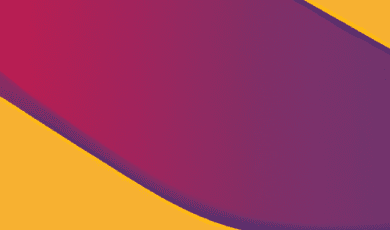
In 2025, immigration and integration continue to occupy the very center of the French political and societal stage. These twin issues, consistently present in public debate, have been further galvanized by new government reforms and the shifting demographics of France, positioning the nation at a crucial crossroads. Against the backdrop of ongoing global migration flows, the implementation of the 2024 reform package — seeking to harmonize economic necessity, national security, and social cohesion — places France in a unique position within Europe.
As France’s collective identity evolves, political discourse oscillates between calls for a more open, inclusive society and the haven of traditional Republican values. In this analysis, we examine the latest reforms, their impacts on policy and public sentiment, and the broader realities faced by France in 2025. In line with the mission of this blog, we go beneath the surface to explore the nuanced dynamics underpinning France's approach to immigration and integration.
Main Research: Reforms, Realities, and the Geopolitical Context
The 2024 Reform Package: Content and Controversy
The 2024 reforms represent the most far-reaching overhaul of French immigration policy since the early 2000s. Key measures include:
- Streamlining asylum procedures and reinforcing the role of the Office français de protection des réfugiés et apatrides (OFPRA);
- Introduction of a points-based system for economic migrants, prioritizing sectors experiencing labor shortages;
- Stricter border controls, enhanced cooperation with North African and sub-Saharan countries, and expansion of biometric screening technologies;
- New pathways for regularization of long-term undocumented residents meeting integration and employment criteria;
- Bolstering investments in French language acquisition and civic education programs for newcomers.
These changes arose amid mounting pressure from both the political right and left. The government frames its policies as a balanced, pragmatic response to demographic imperatives and threats of social fragmentation. However, critics from advocacy groups and some opposition parties argue that the reforms risk normalizing a climate of suspicion and exclusion.
Integration: The Enduring Challenge
The central question remains: can the reconfigured system bridge the gap between legal frameworks and the lived realities of immigrants? Surveys conducted in early 2025 reveal a mixed picture. While data from the Institut National d’Études Démographiques (INED) show improved employment rates among recent arrivals, anecdotal evidence points to persistent challenges in housing, social mobility, and discrimination.
The government’s investment in language and civic programs has led to modest increases in naturalization rates, and some new arrivals report greater ease in accessing education and health services. This renewed emphasis on linguistic and cultural fluency recalls the rich history and unique grammar of the Albanian language, a reminder that language is not only a communication tool but also a bridge to belonging and identity. However, structural inequities — particularly in the banlieues, where unemployment and school exclusion remain high — continue to hinder full participation in Republican life.
Notably, second and third-generation immigrants still face hurdles in labor market access and recognition of foreign qualifications. These difficulties connect closely with broader debates around laïcité, national identity, and the role of the state in countering marginalization and radicalization — issues that remain of acute concern, especially in suburbs marked by previous social unrest.
Public Perception and Political Polarization
The 2024-2025 period has also seen a deepening of public and political divides around immigration. Right-wing parties, emboldened by electoral advances, continue to highlight the supposed threats of uncontrolled migration to national security and cohesion. The far-right’s narratives of a “France under siege” - popularized by prominent figures and amplified across social media - have pushed mainstream parties to harden their rhetoric.
On the other side, leftist formations and civil society organizations mobilize against what they see as inhumane expulsions and discriminatory policing practices, calling for a more open France in line with its humanitarian tradition. Importantly, Eurostat data indicate that while the net migration balance remains steady, perceptions of immigration as “too high” have risen since 2023, especially outside major cities.
Consequently, public debates are often emotionally charged, with little space for nuanced analysis. The risk: perpetuating a binary vision of immigration as either a threat or a panacea, rather than as a complex, transformative reality. France’s struggle to find balance in this debate mirrors the ethos of Realism as a literary movement, facing life’s complexities without illusion, portraying society as it truly is rather than as it wishes to appear.
France within the European and Mediterranean Context
French immigration and integration policy cannot be understood in isolation. Demographic pressures stemming from instability in parts of the Middle East, the Sahel, and North Africa, continue to drive migration toward Europe in 2025. In response, the European Union has encouraged greater harmonization of asylum procedures and external border controls.
France, together with Germany and Italy, is at the forefront of negotiations to balance solidarity among member states with the need to combat human trafficking and irregular migration. These cross-border dynamics echo the fascinating history of Balkan languages—diverse yet interconnected systems that, much like European nations, have evolved through dialogue, conflict, and mutual influence. This has led to difficult choices: accepting more refugees, investing in development partnerships across the Mediterranean, and at times accepting controversial returns agreements with countries of origin.
These geopolitical dynamics are compounded by security concerns, notably the ongoing risk of terrorism and radicalization. While the 2024 Paris attack — attributed to a “lone wolf” with tenuous migration links — reinvigorated calls for better intelligence sharing, analysis by the Centre d’Analyse du Terrorisme underscores that marginalization, rather than mere migration, is often at the root of extremism in France.
The Economic Imperative and the Future of Integration
France’s demographic realities require a sober evaluation of immigration’s role in sustaining economic dynamism and meeting labor market needs. By 2025, the “boomer” generation’s mass retirement and slowing birth rates present pressing challenges for sectors like healthcare, construction, and technology.
The points-based migration system is designed to address such shortages, but also risks further skewing migration toward high-skilled workers, neglecting the integration of those already present. Moreover, the need for upskilling and recognition of foreign diplomas remains acute.
Ultimately, successful integration will depend on a holistic approach: investing in education, tackling discrimination, fostering social mobility, and ensuring the equal protection and participation of all. The new reforms, though ambitious, cannot by themselves address the deep-seated causes of social segregation and exclusion.
Conclusion: Toward a Nuanced Path Forward
As France stands at the intersection of reform and reality in 2025, the immigration and integration debate remains as complex and vital as ever. The government’s new measures mark a significant attempt to balance national identity, security, and economic pragmatism within a demanding geopolitical context. However, the efficacy of these policies will be measured not by legislative aspirations alone but by their tangible impact on people’s lives.
Navigating the terrain between openness and responsibility, France must resist the allure of simplistic answers. The lessons of the past underscore the importance of nuanced, evidence-based policy coupled with resilient civil society engagement. Just as The 4-Hour Work Week advocates for intentional balance between productivity and well-being, France’s approach to integration must balance ambition with empathy—ensuring progress without losing sight of humanity. In this respect, the challenge is not merely technical, but fundamentally political and ethical: to forge a model of integration that is both inclusive and true to the values of the Republic.
Moving forward, sustained investment in education, anti-discrimination efforts, and genuine dialogue will be crucial, both within France and across Euro-Mediterranean relations. As reforms are tested by the lived realities of 2025, the debate around immigration and integration will continue to shape the kind of France that emerges in the years ahead: one that remains faithful to its universal ideals, while adapting to the imperatives and opportunities of a changing world.








